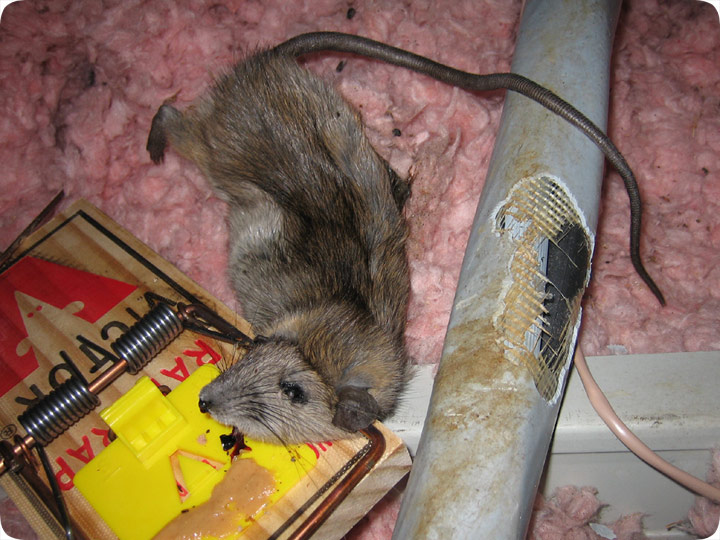-
info@aaanimalcontrol.com
Call us for help in your town
Humane Wildlife Education
Rodents Chew on Electrical Wires in the Attic

Rodents do chew on electrical wires in attics. They do this in order to wear down their ever-growing teeth. They have to gnaw. It's in their nature. They love to gnaw on electrical wires. This causes electrical shorts, and worse, fire hazards, especially if the copper inside is exposed to wood beams. But this house had rare steel beams! Does your attic have steel beams? If not, and if you have rodents up there, beware! If you have rodents chewing on the wires in your attic, it's best to have the problem solved as quickly as possible, to prevent a possible fire. Get the house sealed, the rodents trapped and removed, and the problem solved permanently! An expert such as myself is probably the best answer if you are serious about getting the problem with the rodents solved correctly. Perhaps the person you hire will be as awesome as me at reading the subtle clues and properly diagnosing the animal causing the problem. A novice might think that a Crested Elk or a Fiddler Crab did this chewing on the wires.
Do it yourself: Visit my How To Get Rid of Rats page for tips and advice.
Other rodents: Or visit my Get Rid of Mice page or Get Rid of Squirrels page.
Get professional help: Visit my Nationwide Pro Directory of wildlife removal experts.
Why do rodents chew electrical cords - The incisors of rodents grow at a fast rate. The only recourse these animals have is to chew on hard surfaces to keep the teeth worn down. Failure to do this will result in overgrown teeth and the inability to chew properly. Rodents that cannot file down their incisors often die a slow death from starvation. Electrical cords have no special quality that attracts rodents to them. These cords intersect more areas of a home’s structure and present a nice, hard surface for rodents to chew on. Because of the smaller diameter of electrical wires, they are more appealing to a rodent than a large beam of wood. Copper wire is soft enough that a rat can chew through it, but it is still a metal and will therefore wear down the teeth nicely. Contractors do not build homes with rat prevention in mind, and electrical wires are not made with a rodent-proof coating. Most companies assume that a homeowner will keep up their property enough so that rats will never be an issue. If you are experiencing chewed wires you need to start damage control immediately and have the offending rodents trapped and removed.
For more wildlife stories, click my Wildlife Blog or click my below banner to hire a local trapper.





















